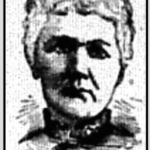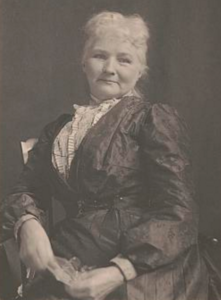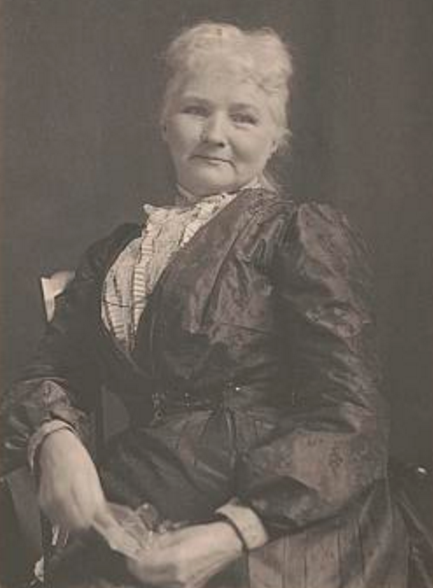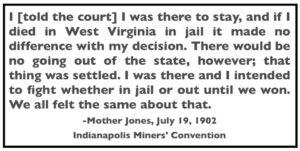 —————
—————
Hellraisers Journal – Saturday July 26, 1902
Parkersburg, West Virginia – Organizers Sentenced, Mother Jones Berated
From The Pittsburg Press of July 24, 1902:
Parkersburg, W. Va., July 24.-There was the most intense interest in the crowded room of the United States District Court this morning when Judge Jackson began reading his lengthy decision declaring “Mother” Mary Jones, the angel of the miners, and seven other organizers of the United Mine Workers and four Hungarians to be guilty of contempt of disregarding his injunction of June 19, against holding a meeting or creating a demonstration at or near the Pinnickinnick mine of the Clarksburg Fuel Co., or near the residence of miners at work. Judge Jackson, after concluding his decision, sentenced the defendants as follows:
Thomas Haggerty, 90 days in jail; Wm. Morgan, Bernard Rice, Peter Wilson, Wm. Blakeley, George Bacon, Thomas Laskavish, 60 days each. “Mother” Jones’ sentence was passed till afternoon. It is said she will receive a stiff fine and will not be jailed. Albert Repake, Joseph and George Roeski and Steve Teonike, Hungarians, passed until the afternoon session.
Judge Jackson stated that the defendants would not be sent to the same jail. District Attorney Blizzard sprung a sensation by immediately filing an affidavit that Secretary Wilson, of the United Mine Workers of America, had violated the restraining order by making an inflammatory speech at Clarksburg July 7, and at Fairmont July 8. His arrest was asked. Judge Jackson made an order that Wilson be arrested and brought within the jurisdiction of the court. Wilson is said to be in Indianapolis.
Jackson’s huge frame shook with emotion as he dramatically emphasized portions of his decision to “Mother” Jones, who was the center of attraction.
She was surrounded by the other defendants and Vice President Lewis, of the United Mine Workers. The defendants were surprised at the decision and are bitter. The miners agree that this is the most effective blow that could be struck against the men’s cause in their attempt to get out the 12,000 miners in the Fairmont coal field. The judge first reviewed in detail the bill of the coal company which led up to the order of the court and the injunction, which it was claimed was valid. Continuing he said:
The question for this court now to consider is whether or not the defendants violated its order and if so, to determine what punishment shall be imposed on them for its violation. What is an injunction? Is it the exercise of an arbitrary power by the courts of the country or is it a power that has been recognized from a very early date, as one of the branches of administrative justice? I answer this question by affirming that the ordinary use of the writ of injunction is to prevent wrongs and injuries to persons and their property or to reinstate the rights of persons to their property when they have been deprived of it. It is the most efficient, if not the only remedy, to stay irreparable injury and to punish those who disobey the order of court granting a writ. It is a mistaken idea to suppose that the courts of this country abuse this writ. In my long experience on the bench I cannot recall a single occasion where any court, either federal or State, ever abused it in what is known as strike cases.
In the case we have under consideration today the bill alleges there is a combination of persons who were known as organizers, agitators and walking delegates, who came from other States for the purpose of inducing a strike in the soft coal fields of the State of West Virginia, that their object and purpose is to induce persons who are not satisfied with the terms of their employment, and who are not asking an increase in their wages to cease work for their employers, thereby inflicting great damage and injury upon them [the employers].

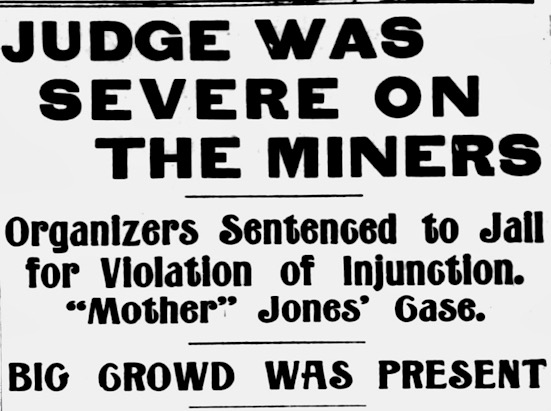
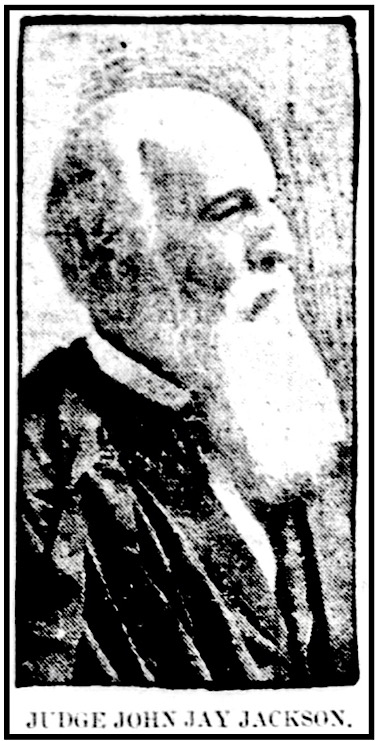
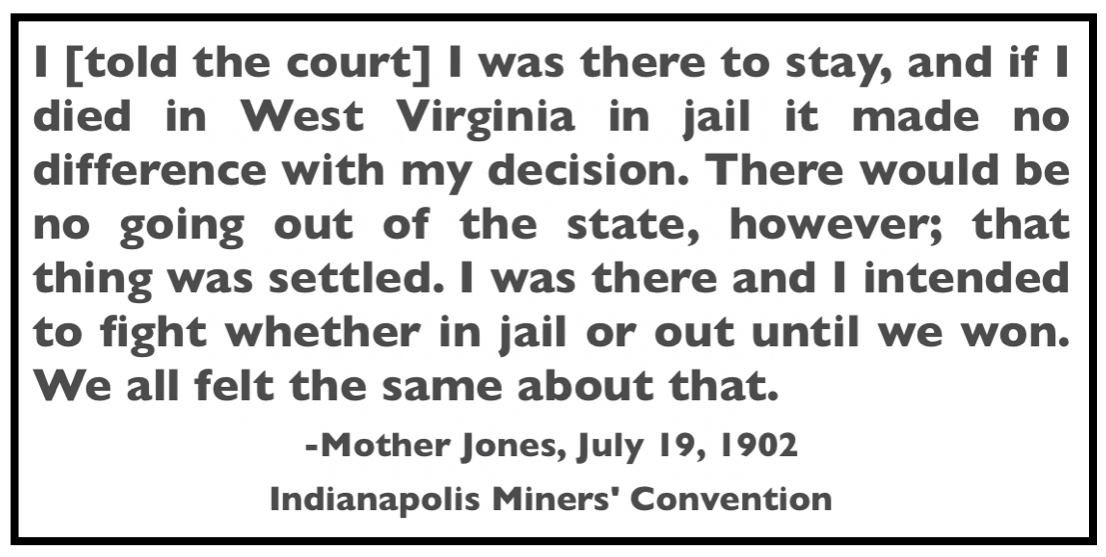 —————
—————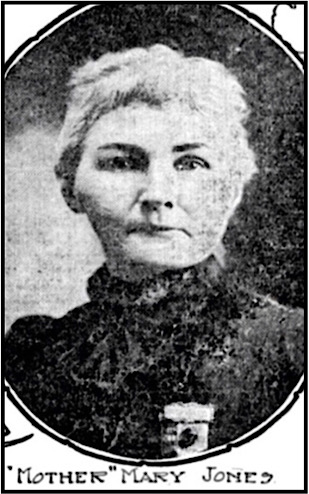
 —————
—————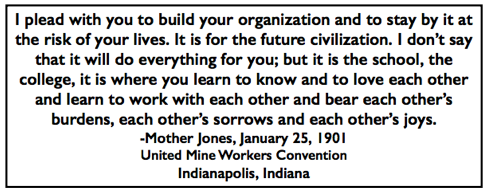 —————
—————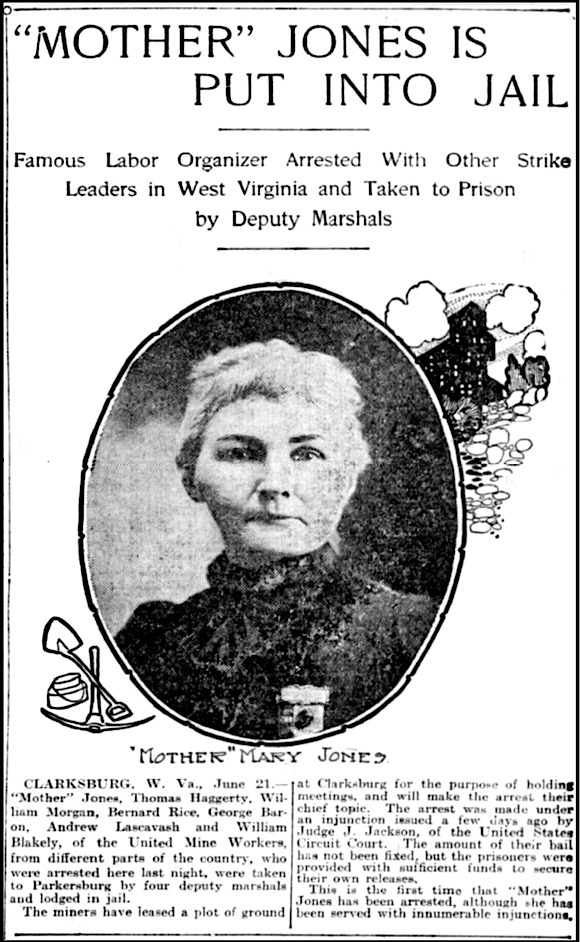
 —————
—————